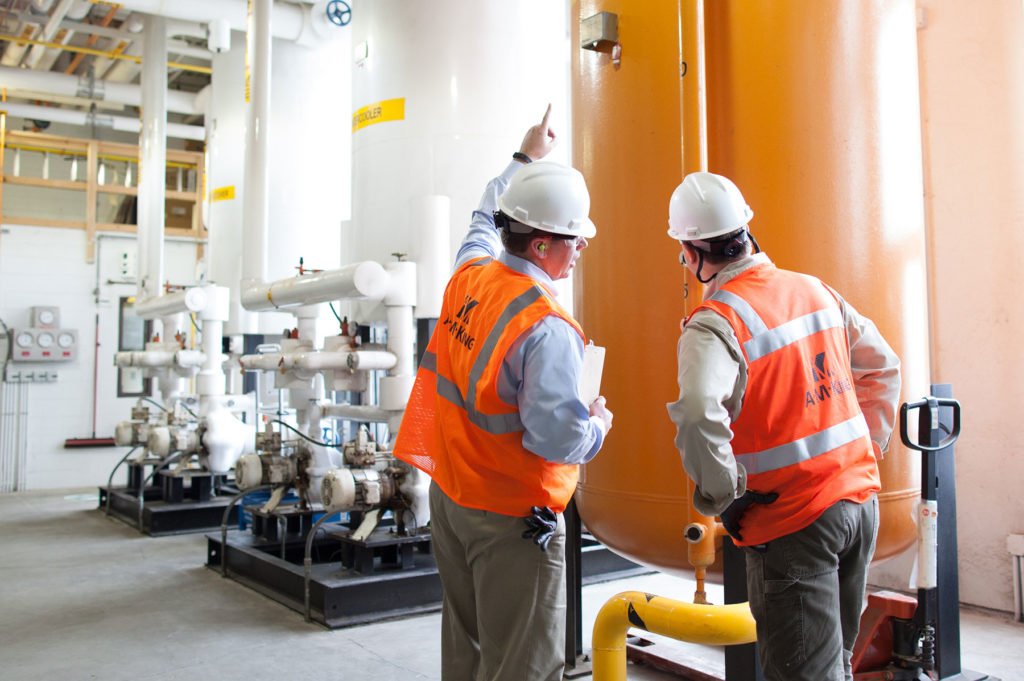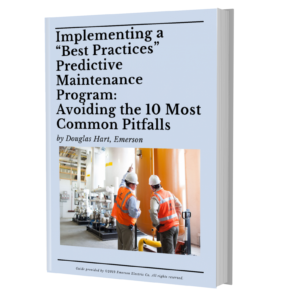How To Implement Predictive Maintenance in 3 Easy Ways

Estimated reading time: 6 minutes

Implementing Effective Preventive & Predictive Maintenance
Many organisations are shifting towards implementing a predictive maintenance to improve the efficiency and effectiveness of assets. Productivity levels may drop between 5% to 20% as a result of poor maintenance, while unscheduled downtime has cost US manufacturers an estimated $50 billion each year.
Implementing an effective Predictive Maintenance (PdM) program is imperative for both industrial and manufacturing organisations to have a global competitive edge. An effective PdM program can positively influence several key factors in a plant such as equipment reliability, equipment availability, production and bottom-line profitability. Plant maintenance is important in ensuring production management is maintained at an optimal operational cost.
Predictive maintenance is defined as maintenance that comprises of monitoring the performance and condition of equipment during normal operation to reduce the likelihood of failures. Predictive maintenance thrives in its ability to predict when equipment failure could occur (based on certain factors), followed by preventing the failure through regularly scheduled and corrective maintenance.
Here are 3 ways to implement a successful PdM initiative:
- Proper Equipment Selection
- Proper Personnel Selection
- Providing Adequate Training
Download Now: Free Guide on Best Practices to Implementing Predictive Maintenance
Proper Equipment Selection
The best approach is undergong a formalized Reliability Centred Maintenance (RCM) analysis and identify opportunities to mitigate failures by using PdM technologies on various plant equipment. This effort will capture the assets that are candidates for the various technologies and reduce unnecessary PMs associated with those assets. This way, proper plant equipment selection can be tested on a regular basis.
Proper Personnel Selection
When selecting the proper staff for an internal PdM program, there are certain traits to conduct an effective PdM testing and analysis. These include a diverse familiarity with plant equipment and system functions, detail oriented, strong analytical skills, an excellent problem solver and computer savvy.
Providing Adequate Training
Ideally PdM technicians should receive the following initial training:
- Basic introduction to predictive technologies
- Equipment reliability strategies in general
- Test instrument hardware training
- PdM software training
- Report writing training
- CMMS/EAM user training
Future training should encompass:
- Advanced PdM application technologies
- RCFA training
- Certification training after ample time has been spent in the field collecting data and performing analysis
- Power transmission/rolling element bearing
- Precision shaft alignment
- Precision balancing
- Lubrication practices
For the Condition Monitoring program to succeed, it is critical that the personnel performing the PdM data collection and analysis are properly trained. A shortfall in this area will directly impact the quality of the overall initiative.
To provide more information on how to implement an effective predictive maintenance program, Emerson has round up a guide to provide an understanding on how to run a successful PdM program. The guide discusses the most common mistakes organisations make when preparing a maintenance program including improper equipment selection, improper personnel selection, providing inadequate training, consistency, lack of repeatability, not analysing data in a timely manner and more.
Click below to download your free guide
“Implementing a “Best Practices” Predictive Maintenance Program: Avoiding the 10 Most Common Pitfalls”
 |
Implementing Effective Preventive & Predictive Maintenance Course is a 3-day training course held from 16-18 October 2019 (Kuala Lumpur). The training course covers all facets of Preventive and Predictive Maintenance. It is designed to benefit every level of maintenance personnel, providing the most up to date facts and techniques on the maintenance technology that is revolutionising the way our industry operates. It examines the importance of PPM in a World Class Maintenance.
 |

